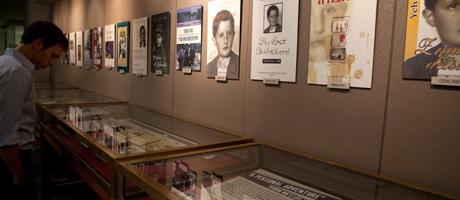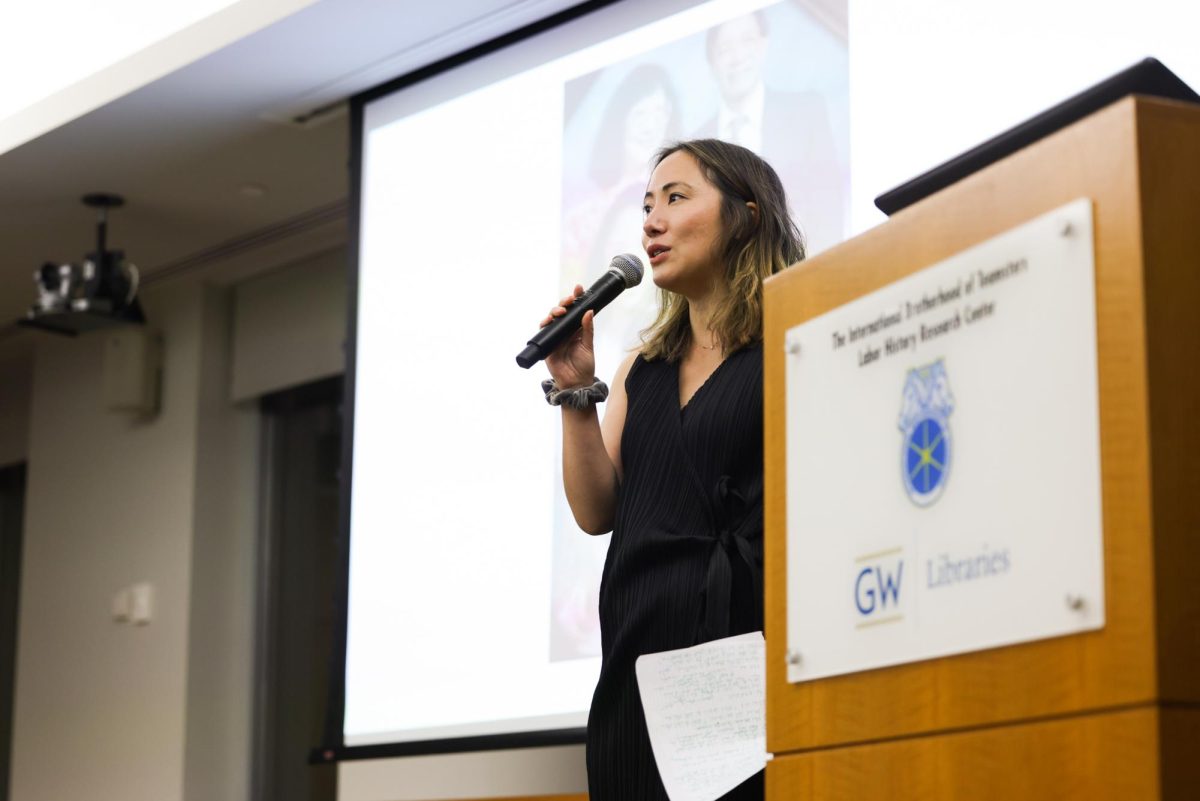When Yehuda Nir was 11 years old and living in the Polish city of Lwów, his father was arrested and never seen again – leaving him, his mother and sister to survive the Holocaust.
Now, on the 75th anniversary of Kristallnacht – the night of coordinated attacks against Jews in Nazi Germany – the GW guest lecturer’s memoir, “The Lost Childhood” has inspired a concert opera.
The opera has been in development for about 15 years since composer Janice Hamer first pitched the idea to Nir while they were having breakfast at one of his Holocaust talks in Philadelphia.
Hamer said the extensive amount of time spent translating Nir’s story into a staged tale of survival was to ensure that “Lost Childhood” did not become buried under the plethora of Holocaust novels, films and other artistic works that bombard today’s culture.
“I think it’s one of the few stories that deals with post-holocaust issues,” Hamer said. “There are lessons about vigilance in every story, but I also feel the Holocaust has been abused and misused and commercialized.”
The opera portrays Nir’s life through a series of conversations between two psychiatrists – Judah and Manfred. The characters were respectively based on Nir and his colleague Gottfried Wagner, the descendent of Nazi supporters who spent his life atoning his family’s sins, most notably his great-grandfather famed composer Richard Wagner.
Adolf Hitler greatly admired Richard Wagner’s compositions and even found inspiration for his vision of Nazi Germany in the operas, according to psychiatry and behavioral studies professor Walter Reich. Gottfried’s break from this deep-rooted anti-Semitism led his family to disown him, and he dedicated the rest of his life to bridging the gap between Germans and Jews.
“Gottfried abjured these views and immersed himself in the issue of the Holocaust,” Reich, a close friend and colleague of Nir, said. “It was in this connection that he and Dr. Nir developed a bond of friendship and reconciliation.”
Nir took on at least four different aliases during the war when he and his family left their Jewish identities behind and posed as Roman Catholic Poles, using the “hiding in plain sight” strategy to blend into the anti-Semitic society. Though Nir was not available for comment for health reasons, wife Bonnie Maslin told The Hatchet that these adopted Christian habits remained with him through the rest of his life.
“For the longest time, if you’d wake him in the middle of the night, he’d start reciting the Hail Mary,” Maslin, a GW alumna, said. “Or walking by a church he’d cross himself out of habit.”
Reich incorporated Nir’s tales from his memoir of bleached hair and time at a labor camp into his Holocaust Memory class at GW, bringing Nir down from New York, where he is a psychiatrist, to speak to the class. He also spearheaded a 2011 exhibition with his students that explored Nir’s identities during the war in conjunction with a collection of 1,700 Holocaust-related books donated by Nir and Maslin for an exhibition at Gelman Library.
Mary Azrael, who worked with Hamer and created the opera’s script, called a libretto, hopes that the constructive relationship and intimate conversations between Judah and Manfred will convey a strong message of forgiveness.
“These questions of, what happens to a person who survives? How does that really affect who they are?” Azrael said. “People still hate each other, fear each other, kill each other because they’re different. It can help a person to get inside the mind of another.”
Discount tickets are available for the opera, which will be presented at Strathmore at 8:00 p.m. on Nov. 9 with a free lecture beforehand beginning at 6:45 p.m.






